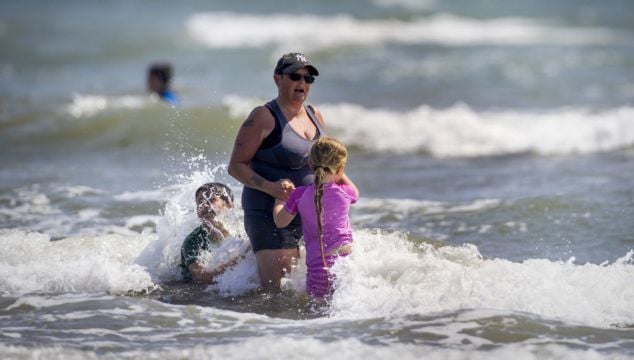Ireland has no shortage of stunning swimming spots, although the country rarely enjoys weather that encourages a trip to the beach.
With the island currently in the grip of an intense heatwave – and temperatures for once rivalling Spain’s Costa del Sol and the French Riviera – much of the country will be heading to the coast to cool off.
The Blue Flag is one of the world’s most recognised eco-labels, and choosing a Blue Flag beach as your destination means it strictly adheres to criteria relating to water quality, information provision, environmental education, safety and site management.
A record-breaking 95 Blue Flags were awarded by environmental organisation An Taisce in Ireland this year, with pristine beaches and marinas dotted all along the coastline for the public to enjoy.
Seven beaches awarded the flag in 2022, which were not awarded in 2021, are Trá Inis Oírr (Main Beach) in Co Galway; Fountainstown and Youghal Front Strand in Co Cork; Balcarrick, Donabate and Rush, South Beach in Fingal; Ballybunnion North Beach in Kerry and Ballymoney North Beach in Co Wexford.
Overall water quality at Ireland's beaches and lakes is good, according to the Environmental Protection Agency (EPA), with 97 per cent of bathing sites meeting or exceeding the minimum standard last year.
When it comes to swimming spots to avoid, the EPA classified just two as having “poor” water quality in its latest annual report on bathing waters - Balbriggan’s Front Strand Beach in Co Dublin and Lady’s Bay in Buncrana, Co Donegal.
The EPA advises swimmers to always check www.beaches.ie for the latest water quality information before visiting their local bathing site.
Water safety
Those heading for a swim this summer should also pay heed to water safety advice, with Water Safety Ireland previously warning that warmer weather “sometimes lulls people into a false sense of security”.
Even during the summer in Ireland, waterways remain quite cool which affects the muscles needed to swim safely back to shore.
Always swim at lifeguarded waterways or in designated bathing areas that are known to be safe and have ring buoys present.
Stay within your depth, supervise children closely and never use inflatable toys on open water as you can be swept out from shore in an instant.
Alcohol is also a factor in one third of drownings, and should never be consumed before any aquatic activity as it can lead to someone overestimating their ability and underestimating the risks.







